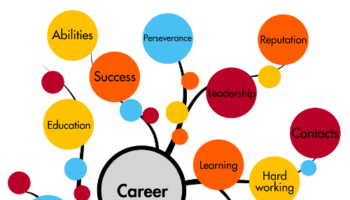The world of employment has never been more uncertain than it is today. Between the downscaling of companies caused by Coronavirus to the increased uptake of Artificial Intelligence (AI) and machine learning across almost all industries, career opportunities seem under threat in almost all sectors making it increasingly difficult to find a profession for life.
However, while the types of jobs we might do in the future may well be changing, there are some sensible steps you could take today which will help improve your career prospects in the years to come. So, if you’re struggling to work out how to future-proof your employment, try following these sensible tips.
Retrain in the skills likely to be required for future employment
The digitization of business has been ongoing for many years already. However, there’s little doubt that computers and tech will form an intrinsic part of almost all jobs in the future. So, while you might not want to particularly specialize completely in a computer-related discipline, it certainly won’t do any harm having complementary IT skills which you can use to enhance your employability.
For example, cloud computing has been one of the fastest-growing sectors of the entire tech and IT industry over the last decade, with most firms already migrating to the cloud for the supply of their digital services. No matter what career path you intend to follow, committing to learn cloud computing and having this additional knowledge in your skillset will massively improve your employment chances.
Improve your soft skills
So-called ‘soft skills’ are an intrinsic part of almost all roles these days. Soft skills include the following qualities – all highly desirable from an employer perspective:
Communication skills: These days, very few people work in a solo capacity, and the vast majority of roles involve at least some measure of teamwork. Therefore, having good communication skills – i.e., being able to express yourself well and, crucially, being able to listen to advice and instruction – will make you far more in-demand.
Be a fast learner, improve your time-keeping and work on your self-discipline: While most jobs require at least some time onboarding to learn the ropes and practices followed by a particular company, no employer wants to have to constantly hand-hold their employees. Therefore, you should use those first few days and weeks to learn as much as you can about how your firm work so you can stand alone as quickly as possible. Also, make sure you attend work on time and show diligence in everything you do at work.
Build your professional network
The old saying, “It’s not what you know but who you know”, is as applicable today as ever, and you should aim to build as wide a network of professional contacts as possible. Having good contacts will expose you to more opportunities – both from a personal development point of view and also in your current job.
Take on jobs that offer transferable skills
While some jobs might seem completely unrelated to your desired end job, you will likely find most positions offer some level of transferable skills. For example, if your final goal is to become a full-fledged web designer, taking on a role in Search Engine Optimization (SEO) will give you skills far beyond most web artists that will only serve to make you more employable.
Think about extra-curricular training
If you’re already working, it’s unlikely you’ll have enough free time to consider taking on additional full-time training; however, these days there is a huge range of courses available on the web that you can study as and when suits you. Again, while some of these courses might not seem directly relatable to your end goal job, you’ll be amazed how much crossover there can be with other qualifications.
Just as the example above with web design vs. SEO, try thinking out of the box and look at courses impartially to see if they might give you additional skills that will make you a better-rounded employee overall.
Practice your interview skills
Interviews are deliberately designed to put you on edge so a prospective employer can find a little more about you and how you react under pressure. These days, interviewers are increasingly moving away from the traditional-type questions and instead tend to throw curveball questions to catch you off-guard. Really, there’s no way of anticipating what an interviewer might ask, but you should at least prepare for the more obvious questions, so you have answers ready. Also, you should try to mimic the interview experience with friends or family so you can get used to thinking on your feet and dealing with more obscure questioning.
Brush up your CV
It’s estimated the average scan time of a CV is just three seconds – not long when you consider this as your first point of contact in most jobs. Consequently, you should spend time working on the overall design and content of your CV, make sure you include a short but punchy career statement, and also ensure you highlight your most prominent information (e.g., qualifications, previous roles, etc.). Also, most employment experts suggest you should aim for a single-page CV – at most two pages if you think you have sufficient relevant information to justify it.






